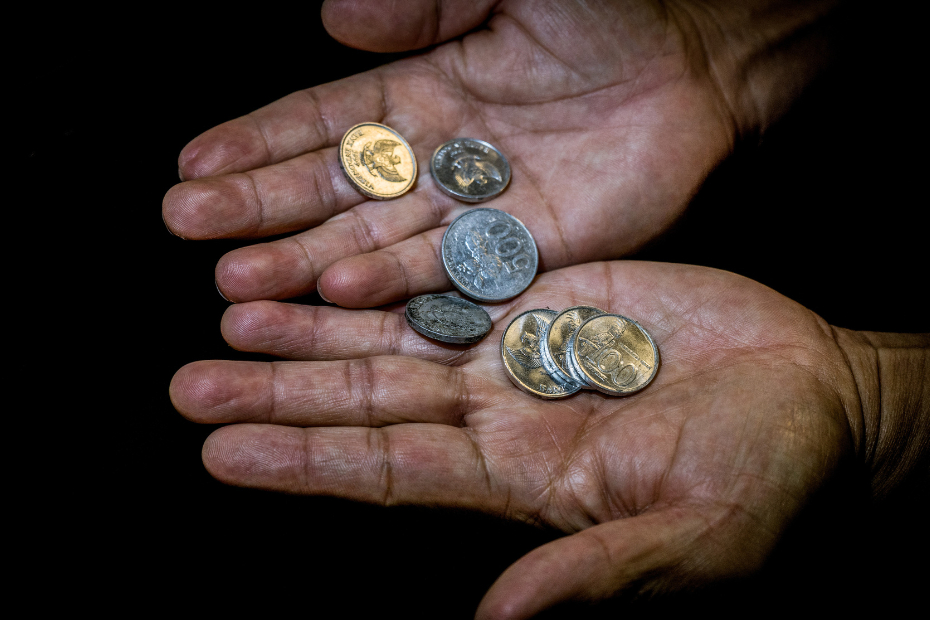Published July 16, 2019 • 4 Min Read
This Money Mastery Series explores the motivations behind people’s spending habits, the common emotional spending patterns, and the triggers of poor habits.
As you work on being exactly where you want to be financially — that is, empowered and confident in your relationship with money — it’s time to become more aware of your relationship with it.
In this Money Mastery Series edition, life coach and spiritual guide Sheila Hill shares how thinking about money as energy may help to better align to its frequency and move one into a state of abundance.
Q: Sheila, how do you advise people to think about money?
Hill: At a molecular level, everything in the universe, everything we touch, think and say is made up of energy.
Money is also energy. However, when it comes to money — and the relationship we have with it — that energy is based on the meaning we put on it and the beliefs we hold about it, not on what money actually “is.”
It may be physical money — paper, metal, digital — but we put the meaning on it. People need to understand what their core beliefs are about money, as that is playing out in their day-to-day interactions with money on a subconscious level.
Q: Why is this approach important?
Hill: This where mastering your money comes in. When you begin to understand that money is really just energy — and energy needs to move — you may then begin to recognize that the way you think about money is your own energy. What if you could become aware of your energy and your emotions around certain types of spending and truly master where you are? You could be adventurous, creative, and even playful about how you think about money and other forms of abundance in your life.
Q: You’re talking about abundance as it relates to a mindset?
Hill: Abundance comes in many forms, and when you believe yourself to be abundant and have positive thoughts and behaviours, you should, by the laws of the universe, attract even more. All those forms of abundance require the same mental energy — the same kind of mindset. When you believe yourself to be in lack, need, or fear about money, it is likely you will attract more of that too.
Q: How do would someone work on changing the way they think?
Hill: The work is in undoing all of the programming, beliefs and behaviors that are keeping you from thinking you have enough.
For example, here are some common statements that have nothing to with money, but everything to do with giving mental energy to not having enough:
- Someone compliments you on your outfit and you say, “What, this old thing?”
- Can you graciously receive a coffee paid for by a friend without saying, “I’ll get it next time,” or arguing over who is going to pay?
- Are you able to graciously accept attention, an award, or acknowledgment for a job well done?
How you answered these questions may be an indicator of what kind of mental energy you are working with.
Q: So how does this apply to money mastery?
Hill: The keys to money mastery include being aware of what you believe, how you spend and any patterns to your spending. Do you shop when you feel empty or sad? After a bad day at the office? Do you shower others with excessive gifts when you’re feeling unworthy? No matter how much you have, you can always be empowered and align yourself to the energy of abundance instead of austerity. Money doesn’t have to be elusive, or hard to keep. We just need to practice being in a healthy, positive relationship with it, in a way that has never been done before.
This article is intended as general information only and is not to be relied upon as constituting legal, financial or other professional advice. A professional advisor should be consulted regarding your specific situation. Information presented is believed to be factual and up-to-date but we do not guarantee its accuracy and it should not be regarded as a complete analysis of the subjects discussed. All expressions of opinion reflect the judgment of the authors as of the date of publication and are subject to change. No endorsement of any third parties or their advice, opinions, information, products or services is expressly given or implied by Royal Bank of Canada or any of its affiliates.
Share This Article






